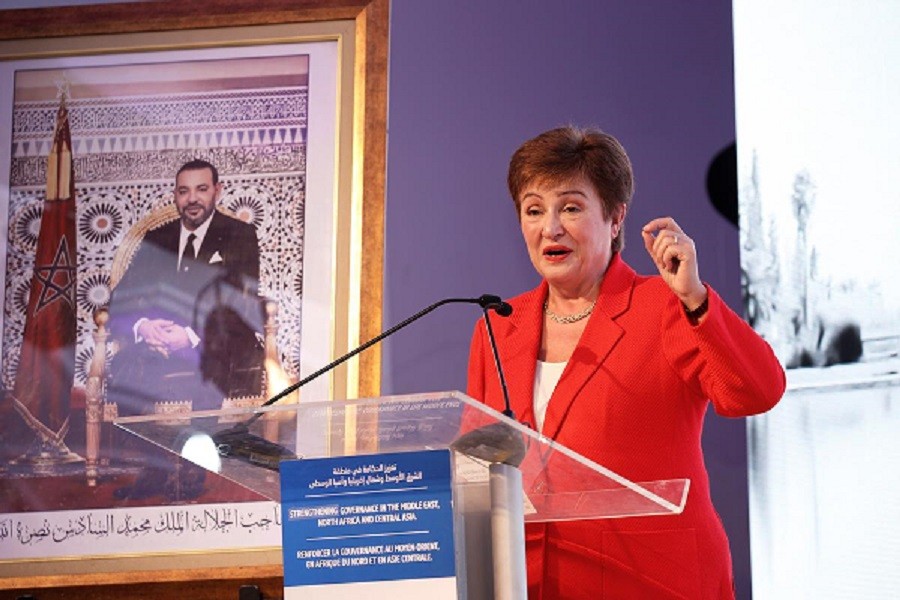As countries around the world struggle to strike a balance between lives, jobs and economies amid the continuing impact of the coronavirus pandemic, the International Monetary Fund (IMF)’s Managing Director Kristalina Georgieva has reminded that public health response remains the key priority to protect people, jobs, and economic activity.
“Across the world, countries have implemented exceptional measures to support individuals and workers. These lifelines should be maintained as needed and, in some cases, expanded,” Georgia made the remarks at the virtual meeting of the G20 Finance Ministers and Central Bank Governors, chaired by Saudi Arabia.
While there remains great uncertainty on the outlook, the unprecedented actions taken by the G20 countries and others have helped to avert a much worse outcome, she noted and added: “As we enter the next phase of the crisis, further policy action will be required, as well as increased international cooperation. The G20 Action Plan is key to this effort.”
The IMF managing director also called on the G20 countries to continue with supportive fiscal and monetary policies “until we can secure a safe and durable exit from the crisis,” warning that premature withdrawal of this support could derail the recovery and incur larger costs.
“Policies need to prepare for and support transformational change, as some sectors may permanently shrink, while others—such as digital services—will expand. Adapting to change in an inclusive manner will require adequate social protection, and training and job search assistance to workers,” the IMF chief said.
She emphasised the need for uniting to help the poorest and most vulnerable economies, especially those struggling with high debt or dependent on hard-hit sectors. The G20’s Debt Service Suspension Initiative (DSSI) has been commendable and I hope that consideration will be given to extending it, she added.
In addition, to make it even more effective, Georgia suggested that greater private sector participation, and greater debt transparency, should be strongly promoted.
“Beyond the DSSI, there is a need to fill gaps in the international debt architecture and think about more comprehensive debt relief for many countries,” she said, affirming: “We stand ready to support these efforts.”
“We can use the crisis as an opportunity to build a better future for all people by: maximizing the potential of the digital economy; promoting green investment to combat climate change in a job-rich manner; and investing in human capital to build a more inclusive economy,” she also emphasised.
Mentioning that the IMF has moved with unprecedented speed—providing emergency financing to 72 countries in four months, the IMF chief said, “We will continue to support our member countries relentlessly.”
She added: “We see especially pressing needs to assist low-income countries, and small and fragile states which have been hit very hard—with the support of our membership, we continue to mobilize additional concessional resources to help them. In this context, we are stepping up action to make better use of existing Special Drawing Rights (SDRs).
“The IMF will explore additional tools that could further help in this crisis that is like no other and play our role at the center of the global financial safety net in this time of unprecedented need for our member countries.”


